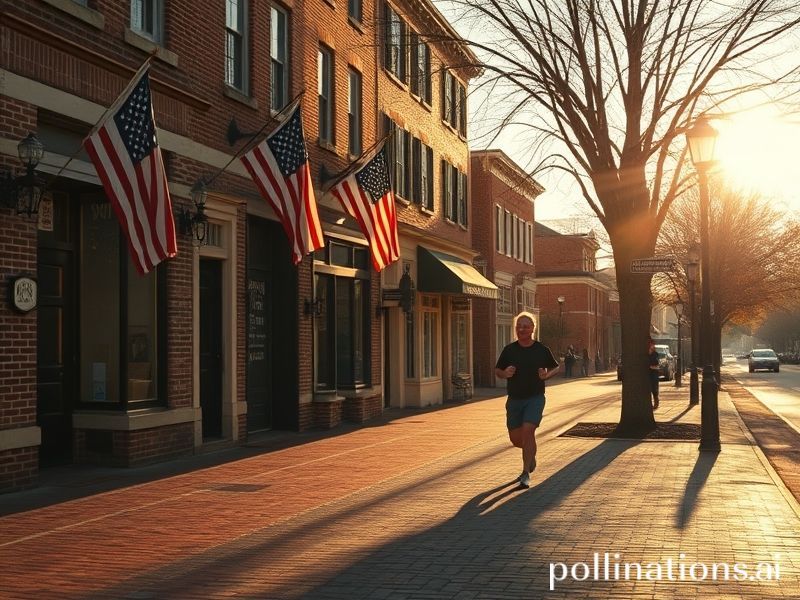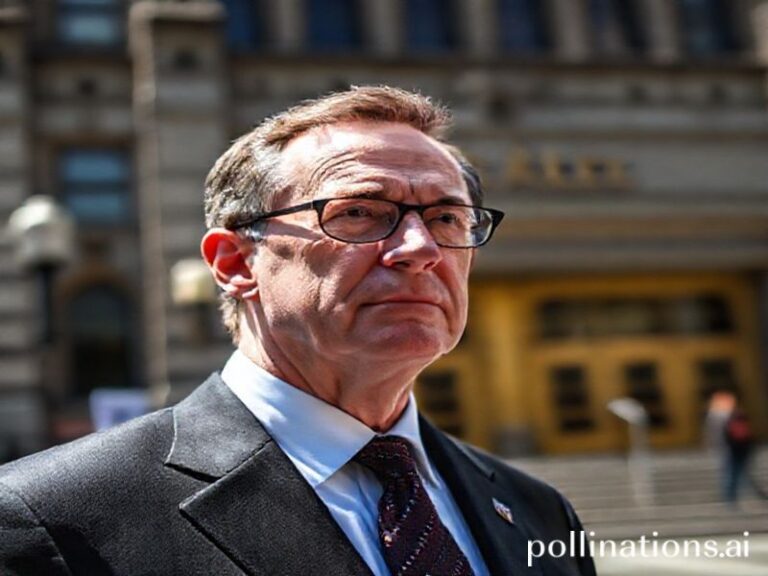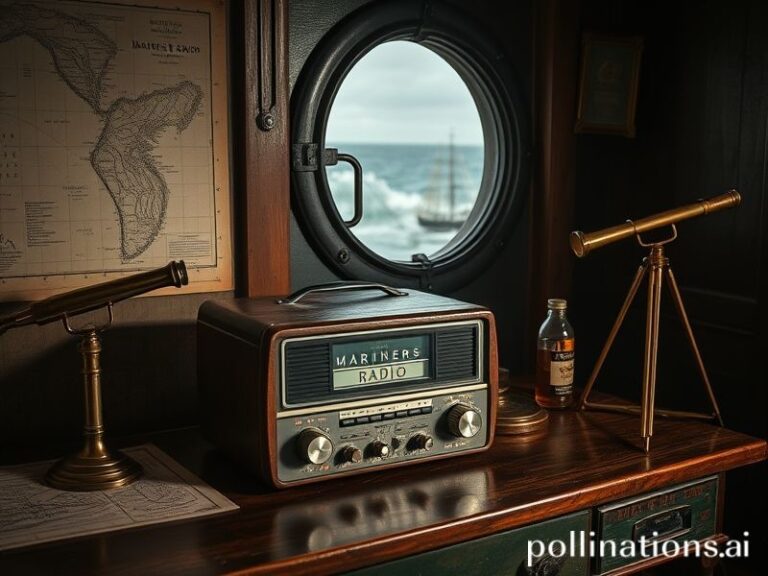Fredericksburg: How America Perfected the Art of Selling Its Bloody History to the Highest Bidder
**Fredericksburg: Where History Goes to Get Selfie-Sticked and Monetized**
The international press corps has witnessed many peculiar American rituals—Super Bowl Sunday, Black Friday stampedes, the quadrennial democratic pageant they call “finding the least objectionable billionaire to govern us”—but few spectacles rival the anthropological wonder of Fredericksburg, Virginia, during tourist season. Here, in this colonial hamlet of 28,000 souls, the entire planet can observe capitalism’s most elegant magic trick: converting human suffering into refrigerator magnets.
For our global readers unfamiliar with this particular slice of Americana, Fredericksburg occupies that curious geopolitical space where the Civil War—what foreigners might recognize as America’s prolonged family therapy session with muskets—gets repackaged as heritage tourism. The city boasts four major battlefields, countless antebellum mansions, and, in a triumph of historical irony, a downtown where Confederate memorabilia shares storefront space with artisanal coffee roasted by bearded gentlemen who’ve never harvested a coffee bean in their lives.
The international significance becomes apparent when one considers that Fredericksburg represents humanity’s universal talent for selective memory. From Auschwitz gift shops to Cambodian killing fields where visitors pose for Instagram, we’ve mastered the art of turning trauma into tourism. The Japanese have their Hiroshima Peace Park; the Irish their potato famine museums; Americans have Fredericksburg, where you can purchase a “Virginia is for Lovers” shot glass while standing on ground where 15,000 men were shot, stabbed, or simply bled out in the mud.
What makes this particularly fascinating for international observers is the city’s sophisticated economy of commemoration. The local visitor’s bureau—an institution that exists primarily to transform historical carnage into quarterly revenue reports—has calculated that heritage tourism generates approximately $700 million annually. That’s roughly $46,666 per battlefield casualty, a return on investment that would make any arms dealer weep with pride.
The global implications become clearer when one realizes that Fredericksburg has become a template for historical reconciliation-through-retail. Chinese developers studying the model for their own civil war sites; Colombian towns exploring post-conflict tourism; Syrian planners (optimistic souls) already drafting brochures for their eventual reconstruction—all look to places like Fredericksburg as proof that yesterday’s atrocities can become tomorrow’s Airbnb revenue.
European visitors particularly appreciate the cognitive dissonance. Germans, who’ve turned remembrance into a national religion of sorts, marvel at American ability to simultaneously honor and trivialize. The French, who’ve perfected the art of packaging their own revolutions for mass consumption, nod approvingly at the gift shop efficiency. The British, whose empire built much of the world’s current instability, simply feel nostalgically at home among the monuments to failed colonial projects.
Perhaps most telling is how Fredericksburg mirrors our global condition: a world where history exists primarily as content, where every tragedy becomes a teachable moment sponsored by local businesses, where we commemorate the horrors of industrial warfare while checking Yelp reviews for the best post-battlefield brunch spots.
The city stands as testament to humanity’s greatest achievement—our capacity to metabolize trauma into trinkets, to transform the worst of ourselves into weekend entertainment, to sell the very ground where we once tried to destroy each other. In this sense, Fredericksburg isn’t just an American phenomenon; it’s a preview of our collective future, where every killing field becomes a revenue stream, every massacre a marketing opportunity, every historical horror a chance to boost local GDP.
And really, isn’t that what civilization has always been about? Taking the unacceptable and making it palatable, preferably with a gift shop attached. Fredericksburg merely does it with Southern efficiency and a charming colonial aesthetic. The rest of the world is catching up fast.







